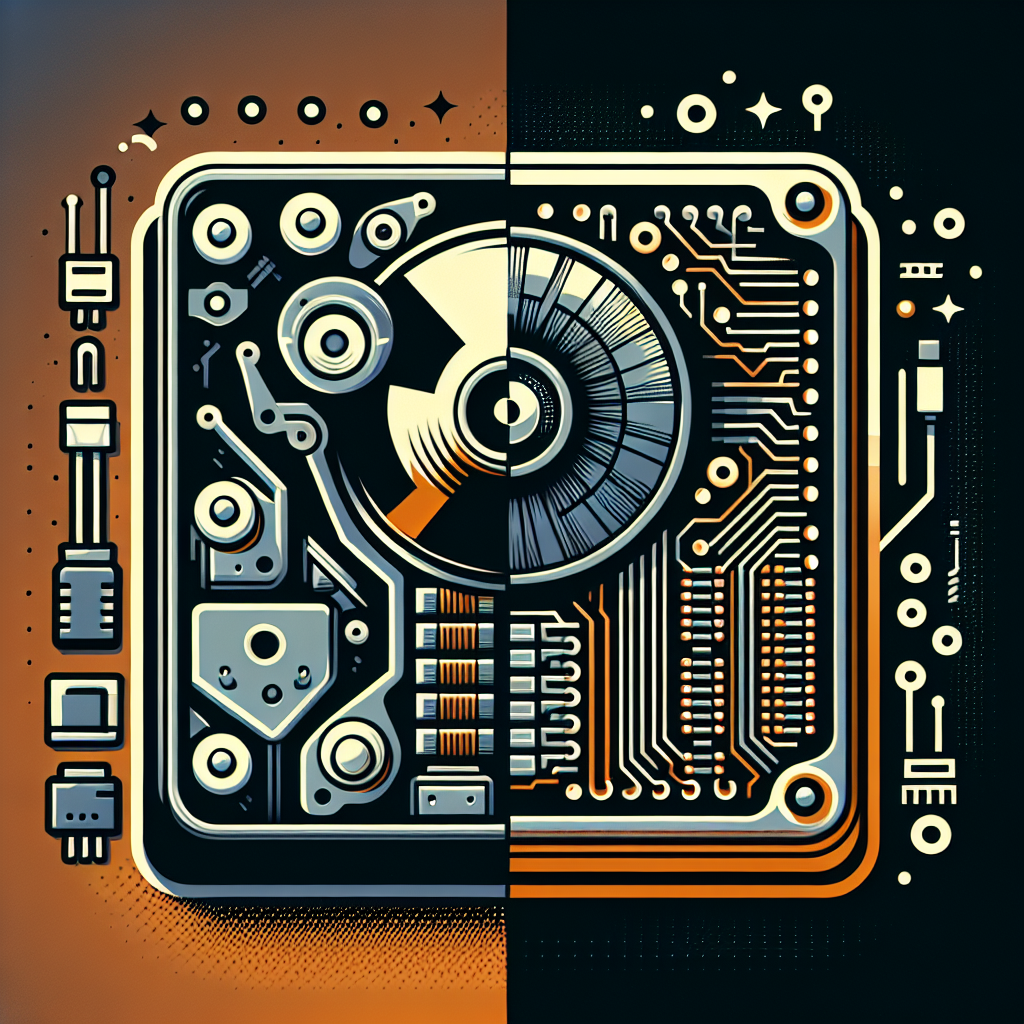Your cart is currently empty!
Understanding the Differences Between Hard Disk Drives and Solid State Drives

When it comes to choosing the right storage solution for your computer, understanding the differences between hard disk drives (HDDs) and solid state drives (SSDs) is crucial. Both types of drives serve the same purpose – storing and retrieving data – but they do so in very different ways. In this article, we will explore the key differences between HDDs and SSDs to help you make an informed decision.
First and foremost, the main difference between HDDs and SSDs lies in the technology they use to store data. HDDs have been around for decades and use spinning magnetic disks to store and retrieve data. This mechanical process can result in slower read and write speeds compared to SSDs. On the other hand, SSDs use flash memory chips to store data, which allows for much faster read and write speeds. This means that SSDs can significantly improve the overall performance of your computer, especially when it comes to booting up your system and opening applications.
Another important difference between HDDs and SSDs is their durability. Since HDDs rely on moving parts, they are more susceptible to mechanical failure, such as disk crashes or head crashes. This can result in data loss and the need for data recovery services. On the other hand, SSDs are much more durable as they have no moving parts, making them less prone to physical damage. This means that SSDs are a more reliable option for storing important data, especially if you travel frequently or handle your computer roughly.
In terms of size and weight, SSDs are also superior to HDDs. Since SSDs do not require large spinning disks, they are much smaller and lighter than HDDs. This makes SSDs an ideal choice for laptops and other portable devices where space and weight are important factors.
However, it is important to note that SSDs are typically more expensive than HDDs, especially when it comes to larger storage capacities. This is due to the higher cost of flash memory chips compared to traditional magnetic disks. If you need a large amount of storage space and are on a tight budget, an HDD may be a more cost-effective option.
In conclusion, understanding the differences between HDDs and SSDs is essential when choosing the right storage solution for your computer. While HDDs are more affordable and offer larger storage capacities, SSDs provide faster read and write speeds, increased durability, and smaller form factors. Ultimately, the choice between HDDs and SSDs will depend on your specific needs and budget.

Leave a Reply